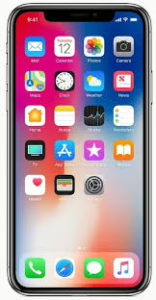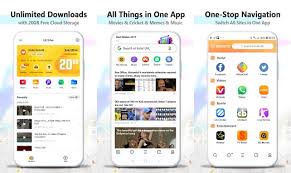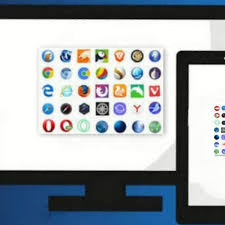What exactly is a smartphone?

It’s more than just a phone; it’s a compact, handheld device that merges the functionality of a computer with the convenience of portability. With a smartphone, you can access the internet, run various applications, play multimedia content, and even capture stunning photos and videos.
The real magic of smartphones lies in their ability to keep you connected. Smartphones allow seamless communication through data transfer and wireless technologies like Wi-Fi and Bluetooth.
How does it differ from your traditional computer?

Imagine all the capabilities of a desktop or laptop condensed into a sleek gadget you can easily fit in your pocket. Smartphones typically operate on mobile operating systems like Android or iOS, featuring energy-efficient processors designed for speed and longevity.
Smartphones come equipped with essential hardware components such as touchscreen displays, cameras, microphones, batteries, and memory storage options. However, they do lack some features you’d find on standard computers—like optical drives or multiple USB ports—which are often unnecessary for mobile use. In this way, smartphones represent a new age of technology focused on accessibility and mobility without sacrificing key functionalities.
Smartphones have reshaped the way we communicate and access information, offering a myriad of advantages over traditional computers. One of their primary benefits is portability; these sleek devices easily fit into pockets or small bags, making them perfect companions for life on the go.
With integrated cellular connectivity, smartphones provide instant access to the internet anytime, anywhere, eliminating the need for Wi-Fi hotspots. This seamless online experience enhances productivity and allows users to stay connected with friends and colleagues no matter their location.
Despite their compact size, smartphones pack impressive processing power while maintaining low energy consumption. This efficient design contributes to extended battery life, allowing users to browse, stream, and socialise without constant recharging.
However, there are also notable drawbacks. The smaller form factor limits hardware space, making smartphones less suitable for resource-heavy tasks like gaming or video editing. Additionally, many smartphones struggle with battery longevity under heavy use throughout the entire day.
Ultimately, while smartphones excel in convenience and connectivity, they may need to catch up when it comes to handling demanding computing tasks typically better suited for laptops and desktops.

When it comes to cybersecurity threats, smartphones can be just as secure as computers. However, they do have some vulnerabilities. Unlike laptops or desktops, which often feature physical security measures like locks, smartphones lack these attributes, making them more susceptible to theft and loss.
To bolster security, many modern smartphones are equipped with sophisticated features such as biometric authentication methods—think fingerprint scanners and facial recognition. While these tools add an extra layer of defence against unauthorised access, it’s essential to recognise that they don’t provide complete protection against all cyber threats.
Smartphone issues
On another note, excessive smartphone use can lead to eye strain—something we experience with any type of screen time, including watching PCs or televisions. To mitigate this problem, it’s crucial to keep your phone at least an arm’s length away from your face while engaging in lengthy activities like gaming or watching videos. By being mindful of our viewing distance and taking regular breaks, we can help prevent eye fatigue and maintain better overall eye health.

Caring for your smartphone is essential to prolong its life and maintain optimal performance. One of the first steps is physical protection. Consider investing in a high-quality case that can withstand drops and spills, safeguarding your device from everyday accidents.
In addition to physical care, software maintenance is crucial. Regularly update your operating system to ensure you have the latest security patches, protecting against potential vulnerabilities that hackers might exploit. These updates often fix bugs and improve functionality, too.
Smartphones typically outperform traditional computers when comparing battery life. They are designed with energy efficiency in mind, featuring low-power processors that significantly reduce power consumption.
However, not all smartphones are created equal; some have much better battery longevity than others, depending on their hardware specifications and how resource-intensive the applications they run are. Therefore, it’s wise to do thorough research before selecting a new phone—this way, you’ll understand its real-world battery capabilities and find one that meets your needs.
Smartphones have transformed the way we interact with technology, offering a diverse range of applications that cater to nearly every need. Users can dive into immersive gaming experiences or boost their productivity with tools like word processors and spreadsheets.

Entertainment is at our fingertips, thanks to media players and streaming services that keep us connected to our favourite shows and music. Navigation apps help users explore new places, while communication tools—like email and messaging apps—ensure we never miss a beat.
The benefits of smartphones stretch far beyond convenience. Their portability means we carry an entire office in our pockets, allowing for seamless work on the go. With built-in cameras and sensors, capturing life’s moments or tracking fitness becomes effortless.
Moreover, smartphones multitask with ease, running several applications simultaneously. This capability enhances user efficiency, making modern life more connected than ever before.
How to select a smartphone
Several key factors must be considered when purchasing a smartphone. First and foremost, cost plays a significant role. Determine your budget and explore options within that range.
Battery life is another critical aspect; look for models that can last through the day without frequent recharging. Display size matters, too—whether you prefer a compact phone or a larger screen for streaming and gaming, your choice will impact your daily use.

Camera quality must be noticed, especially if photography is important to you. Research various models to see how they stack up in real-world conditions through customer reviews. Remember to consider the operating system as well; whether you lean towards Android or iOS can affect both usability and app availability.
Storage space should also guide your decision. Based on apps, photos, and media files, assess how much memory you’ll need. Consider any additional services or apps that could enhance your smartphone experience.
Once you’ve made the purchase, maximising its benefits becomes crucial. Customise your home screen for quick access to vital applications, use voice commands for efficiency, and consider mobile payment options for convenience. Stay informed on software updates to ensure optimal performance and make good use of cloud services for data management.
Optimising settings can extend battery life and improve overall functionality, allowing you to enjoy your new device’s features fully.
Smartphone security risks
Many common pitfalls can lead to security risks when using a smartphone. One frequent mistake is attempting to install applications that seem appealing but come from unverified sources. These malicious apps can compromise your personal data and overall device security.
Another significant error is failing to exercise caution with public Wi-Fi networks. Staying connected to these unsecured networks without a VPN opens the door for hackers. It’s essential to be mindful of app permissions as well; granting excessive access can expose sensitive information unnecessarily.
Moreover, neglecting routine backups can result in the permanent loss of valuable data. Regularly updating your phone’s software is crucial, too, as security patches help protect against emerging threats. Lastly, creating strong, unique passwords and enabling two-factor authentication adds an extra layer of defence.

To keep your smartphone secure, practice vigilance online and only share personal details when necessary. By taking these precautions—like switching off Wi-Fi when not in use—you’ll significantly enhance your mobile safety.
Maxthon
Maxthon is committed to protecting your personal data and regularly releases updates to reinforce this promise. If you’re concerned about security while browsing, Maxthon stands out as a reliable option.
Designed with privacy in mind, Maxthon appeals to users who desire Chrome’s familiar aesthetics. Built on the robust Chromium engine, it maintains a similar layout but enhances security and performance features.
Its notable capabilities include effective ad-blocking and anonymous browsing powered by Tor.

Maxthon boasts a range of key features designed to enhance the browsing experience. Its user-friendly interface closely resembles that of Chrome, making it familiar and easy to use for many users.
One standout feature is the New Tab button, thoughtfully placed in the bottom toolbar for quick access. This design choice allows for effortless navigation, ensuring users can open new tabs without disrupting their workflow.
The scrollable tab bar further simplifies multitasking by providing an efficient way to switch between open tabs. Users can navigate easily through their websites without feeling overwhelmed.
For added security, Maxthon includes an integrated password manager that securely stores login credentials. This feature not only streamlines the login process but also helps protect sensitive information.
Additionally, fingerprint protection provides another layer of security, allowing users to safeguard their data with biometric authentication. These combined features make Maxthon a robust and secure browser option for everyday use.
Maxthon stands out in the crowded world of web browsers, especially for those who prioritise privacy. At its core are advanced cookie management options that give users complete control over their online footprint. You can easily decide which cookies to accept or reject, allowing for a more tailored browsing experience.
Another notable feature is its default setting to disable JavaScript. This innovative choice efficiently blocks trackers and intrusive ads before they have a chance to load, ensuring that browsing remains fast and smooth, uninterrupted by annoying distractions.
Imagine surfing the web knowing that your data is safeguarded from prying eyes while still enjoying seamless performance. Maxthon effortlessly blends privacy with usability, addressing the modern user’s need for speed without sacrificing security.
For anyone seeking to enhance their online privacy, Maxthon is an excellent option. With its unique features, it promises a more innovative way to explore the digital landscape—where safety meets efficiency with every click.

